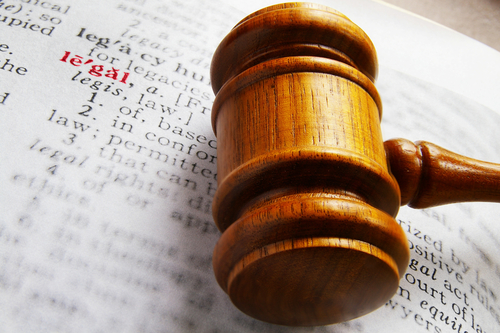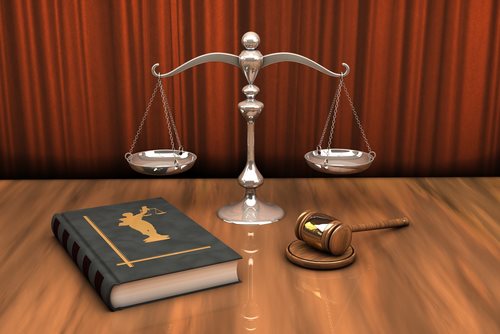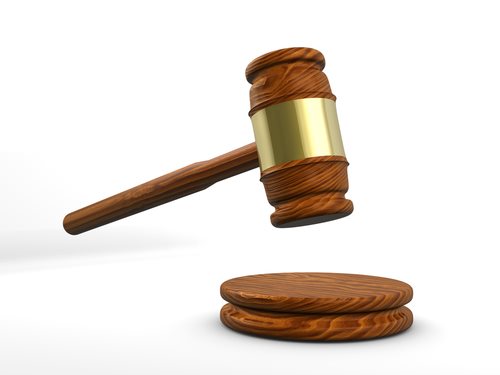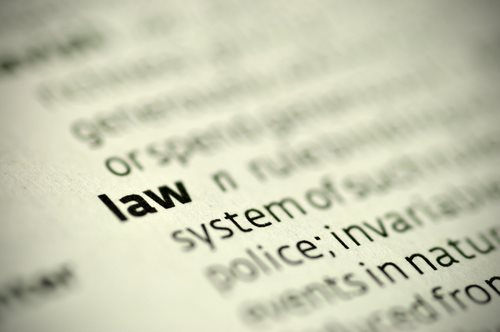Quick Overview of Adjudication Withheld
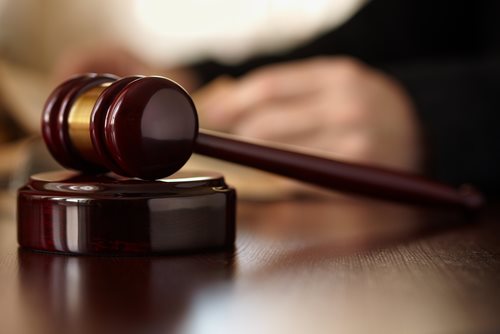
Adjudication-Withheld in Administrative Law: Finding Balance in Decision-Making
Adjudication, the process of resolving disputes and making legal decisions, is a fundamental aspect of administrative law. However, there are instances when administrative agencies choose to withhold their final decisions, a practice known as adjudication-withheld. This article will explore the concept of adjudication-withheld in administrative law, its reasons, benefits, drawbacks, and its impact on affected parties. By understanding this practice, we can analyze its role in maintaining fairness, efficiency, and accountability in the administrative decision-making process.
Understanding Adjudication-Withheld:
Adjudication-withheld refers to the situation where an administrative agency temporarily delays issuing a final decision after conducting an adjudicatory hearing. It is seen as an intermediate step where agencies defer their ultimate judgments, often due to various internal or external considerations.
Reasons for Adjudication-Withheld:
Administrative agencies may utilize adjudication-withheld for several reasons, such as:
1. Further Investigation: The agency might need additional time to gather evidence, conduct research, or consult experts before rendering a final decision. This allows agencies to ensure thoroughness and accuracy, particularly in complex matters.
2. Policy Considerations: In certain cases, agencies may require additional time to analyze the implications of their decisions on broader policy goals. Adjudication-withheld allows agencies to strike a balance between individual case considerations and the overall policy framework.
3. Settlement Negotiations: Adjudication-withheld can provide parties with the opportunity to engage in settlement talks or explore alternative dispute resolution mechanisms. By allowing time for negotiations, agencies hope to promote amicable resolutions and reduce the burden on the administrative hearing process.
Benefits of Adjudication-Withheld:
Adjudication-withheld offers several advantages for both administrative agencies and affected parties:
1. Administrative Flexibility: By temporarily withholding a final decision, agencies have the flexibility to ensure a fair and informed judgment. The additional time allows agencies to gather more evidence, analyze complex legal issues, and consider new arguments that may impact the outcome.
2. Efficiency and Resource Management: Adjudication-withheld can optimize resource allocation by avoiding unnecessary hearings or duplicative processes. By postponing a final decision until all relevant information is available, administrative agencies can render more comprehensive and efficient judgments.
3. Promotion of Settlement: The practice encourages parties to consider settlement options, facilitating dialogue and compromise. Settlement negotiations can save time, costs, and potential adversarial proceedings, leading to mutually agreeable outcomes.
Drawbacks and Concerns:
While adjudication-withheld provides numerous benefits, it is not without drawbacks, which can include:
1. Lengthy Delays: When administrative proceedings are prolonged due to adjudication-withheld, affected parties may experience increased uncertainty and frustration. Delays can hinder access to justice and undermine confidence in the administrative process.
2. Unequal Information Access: Parties may perceive adjudication-withheld as favoring the agency, as it allows them more time to gather evidence, while the affected parties are left in relative uncertainty. This imbalance can raise concerns about fairness and due process.
3. Limited Transparency: Withholding a final decision can limit transparency and hinder public accountability. Parties and the public may be left unaware of the agency’s thought processes and rationales, potentially eroding trust in administrative decisions.
Addressing Concerns and Ensuring Fairness:
To mitigate concerns associated with adjudication-withheld, several measures can be implemented:
1. Timelines and Deadlines: Establishing clear timelines and deadlines for the conclusion of the adjudication process can help ensure that delays are minimized and parties have certainty regarding the expected duration of proceedings.
2. Access to Information: Administrative agencies should maintain transparency throughout the adjudicatory process, providing affected parties with regular updates and disclosing relevant information. Access to evidence and submissions should be equitable to preserve fairness.
3. Justification and Clarity: When agencies choose adjudication-withheld, they should provide clear justifications for the delay. Transparency in the decision-making process can help alleviate concerns and foster trust in the administrative system.
Adjudication-withheld is a unique aspect of administrative law that allows agencies to momentarily delay issuing a final decision after conducting an adjudicatory hearing. While it offers benefits such as administrative flexibility, efficiency, and the promotion of settlements, concerns about delays, information access, and transparency exist. By implementing measures that address these concerns, administrative agencies can strike a balance between achieving just outcomes and maintaining fairness, efficiency, and accountability in the administrative decision-making process.
_________________
Significance of “Adjudicated” in Administrative Law
Administrative law is a crucial component of legal systems worldwide, playing a pivotal role in the regulation of governmental actions. Key to understanding administrative law is the term “adjudicated,” which describes the process by which administrative agencies resolve disputes. This article aims to delve into the meaning, significance, and implications of “adjudicated” in administrative law. By exploring the principles underlying administrative adjudication, we can better comprehend its role in ensuring fairness, accountability, and justice within the administrative process.
Definition and Scope of Adjudicated in Administrative Law:
Adjudicated, in an administrative law context, refers to the process by which an administrative agency reaches a determination in a case brought before it. This process allows administrative agencies to resolve disputes, interpret regulations, and apply statutory provisions. Administrative adjudication occurs when a dispute or controversy arises between an individual, typically a private party or entity, and a governmental agency.
The Significance of Administrative Adjudication:
Administrative adjudication holds immense significance within administrative law as it provides an accessible forum for the resolution of disputes. It serves as an alternative to the traditional court system, allowing parties to address concerns before specialized administrative agencies that possess expertise in a particular field. The proceedings are generally less formal and more flexible, which often translates into quicker resolutions and reduced costs.
Key Principles of Administrative Adjudication:
1. Fairness and Due Process: Just like judicial proceedings, administrative adjudication strives to uphold the principles of fairness and due process. This includes providing notice to parties involved, granting the opportunity for a hearing, ensuring impartial decision-makers, and allowing for an appeal in certain circumstances.
2. Expertise and Specialization: Administrative agencies are often established to address specific subject matters, such as labor relations, environmental protection, or immigration. Adjudication by these specialized agencies allows for the appropriate application of complex regulations and statutes, drawing on the expertise of agency officials.
3. Administrative Finality: Administrative agencies typically seek to bring a sense of finality to the decisions made through adjudication. While parties retain the right to challenge an administrative agency decision in court, facilitating administrative finality aims to provide timely resolutions and avoid unnecessary litigation.
4. Administrative Record: Administrative adjudication relies on the establishment of an administrative record, which consists of all relevant documents, evidence, and legal arguments submitted by the parties involved. This comprehensive record allows for transparency, accountability, and future review of agency decisions.
Challenges and Criticisms:
Although administrative adjudication offers numerous benefits, it is not exempt from criticism. Some common concerns include potential bias or undue influence by the agency officials, limited opportunities for cross-examinations or discovery, and a lack of consistency in decision-making across different agencies or regions. The balance between administrative efficiency and safeguarding fair procedures remains a constant challenge within administrative law.
Adjudication is a vital aspect of administrative law, providing a critical and efficient mechanism for resolving disputes between individuals and governmental agencies. Understanding the meaning and significance of “adjudicated” helps illuminate the unique nature of administrative adjudication, its underlying principles, and the challenges it faces. By embracing these principles and addressing concerns, administrative agencies can ensure a fair, consistent, and accessible system of justice within the administrative law realm.
________________
What does Adjudication Withheld Mean?
Adjudication withheld typically refers to a decision by a judge to put an individual on probation, as a to incarceration or other forms of criminal punishment. As a result, adjudication withheld generates a legally binding ruling of not guilty by the court system.
Instead of putting these individuals in jail and straining already crowded correctional facilities, an adjudication withheld opportunity, will require these individuals to serve community service or enroll in educational courses that are primarily linked to their underlying case. For example, an individual charged with drunk driving who receives an adjudication withheld ruling, may be required to attend alcohol education courses to fulfill the terms of their probation.
If the accused individual does not satisfy the terms of their probation in an adjudication withheld ruling, a finding of guilty will be entered and the individual will be sentence according the punishments defined for the offense. Additionally, if the stipulations of the probation are not fulfilled, the guilty ruling will be placed on the individual’s personal record—the whole premise of an adjudication withheld judgment is that it enables, upon completion of the probation requirements, for an individual to clear his or her name for the charges brought against them.
Stipulations of the Adjudication Withheld Process:
The adjudication withheld process simply defers a guilty ruling; in these situations the accused individual is required to enter a guilty plea. Once the plea is submitted to the adjudication court, the judge presiding over the case will grant the adjudication withheld process and outline the stipulations of the guilty party’s probation. By agreeing to the adjudication process, the guilty party pledges to complete the terms, in full, of his or adjudication withheld process of his or her probation.
If the adjudication withheld process is not satisfied, the individual’s guilty plea will carry “normal” punishments, which could take the form of a fine or a prison sentence. In essence, the adjudication withheld process simply defers punishment, a guilty ruling and a permanent status on the individual’s record until the guilty party completes the requirements outlined in their probation. Upon completion, the individual will be cleared of all charges and will be free from punishment.

